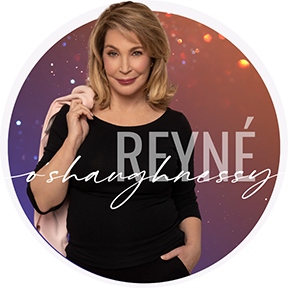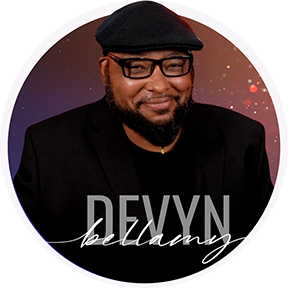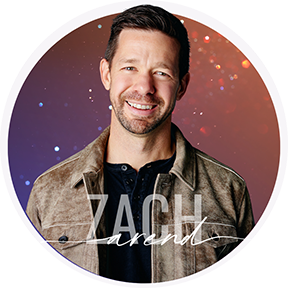YOUNGSTOWN, Ohio – Reyné O’Shaughnessy began her career at Allegheny Airlines in Pittsburgh as a typist. Forty-seven years later, she’s renown as an author and pioneer who cleared the runway for women in the aviation industry.
“I realized 47 years ago that I wasn’t just typing,” O’Shaughnessy says. “I was actually falling in love with aviation itself. It was the excitement of being involved in something so dynamic and transformative, that it fueled my passion for aviation.”
This passion pushed O’Shaughnessy to earn her pilot wings in an era when women were – at best – rare in an industry so heavily dominated by men. “Being a female pilot was not something that was embraced in a male-dominated industry,” she says.

Just six years after starting her job as a typist, O’Shaughnessy took the controls of her first jet – a Boeing 747. She was among the first women to do so. “It was a ‘pinch-me’ moment,” she recalls.
O’Shaughnessy is among 15 speakers who will take the stage March 8 at the fifth TEDx Youngstown at Spotlight Theater, inside Bliss Hall on the campus of Youngstown State University. The participants will share their stories of challenge, perseverance, leadership and inspiration – and how others can make a difference. For tickets, go to tedxyoungstown.com.
“I think this is a strong group this year,” says Greg Smith, who holds the license for TEDx Youngstown. The group includes a diverse slate of participants from all over the world. They will speak on a wide range of topics such as mental health, artificial intelligence, leadership burnout, self-improvement, handling grief, escaping monotony, global illiteracy and civility.
Smith says he became interested in hosting TEDx because of his own role as a public speaker. “I like to have a platform for people to get their ideas out,” he says.
The goal is for these talks to go viral and accumulate “hits” on social media or other digital formats. In 2019, for example, TEDx Youngstown hosted Jim Donovan, the former drummer for the band Rusted Root. His talk has since attracted 6.9 million hits. In general, more than 10,000 hits are considered strong, according to Smith.
“Last year, we had four or five that went viral. That’s outstanding. I could see three or four doing that this year,” he says.
For O’Shaughnessy, her 35 years in the industry and her groundbreaking work as a female commercial pilot has led to a career as an author and public speaker who has addressed audiences all over the world. Retiring as a captain, she logged more than 10,000 hours flying jets such as the 747, Boeing 727, Airbus A300 and A310, and Boeing’s 757 and 767.
“It was not easy, but it wasn’t only me,” O’Shaughnessy says. “There were other trailblazers. We were just trying to kick down walls.” These efforts, she says, helped pave the way for other women to pursue careers in aviation.
Her talk on March 8 will tackle an important issue that impacts airline safety today – the mental health of pilots. O’Shaughnessy’s book, “This is Your Captain Speaking: What You Should Know About Your Pilot’s Mental Health,” published in 2021, examines the stressful life of pilots in a very high-pressure industry.
“Over 35 years, I listened to pilots inside and outside of the cockpit struggling with their own health,” she says. “It stems from the general concern of the well-being of aviation professionals, and, for that matter, all high-performance professionals.”
In her case, O’Shaughnessy says she had to deal with dangerously high blood pressure, causing her to address and balance her health and career. Approximately one-third of pilots do not make it to retirement, she says, citing the stress levels that come with the profession.
“I truly believe a comprehensive approach to health and mental wellness can significantly impact the aviation industry positively,” she says.
Other speakers set for TEDx Youngstown touch upon life lessons borne of persistence and accomplishment.
Devyn Bellamy, a senior marketing manager at HubSpot, who lives in Youngstown, plans to speak on artificial intelligence and how this technology has helped change his career and life.

“I also have learning disabilities, and that’s made life challenging for me,” Bellamy says. “The way I’ve been able to excel is leveraging technology to supplement my disabilities. AI is another game changer.”
Bellamy, who is initially from Silicon Valley and moved to the Mahoning Valley after the dot-com bubble burst in the early 2000s, has ADHD and dysgraphia, a neurological condition in which a person has difficulty translating thoughts into written words. “It makes writing very difficult, also manually intensive tasks,” he says.
The use of AI has helped Bellamy overcome these challenges. “Leveraging AI has bridged the gap to help me produce many different kinds of content that before would have been inaccessible to me. That’s the leap that will take creatives to the next level,” he says.
Bellamy clarifies that he doesn’t use AI for the final product he creates. Rather, it’s a tool to inspire ideas, create a summary of transcripts or help with routine writing and documentation in the course of a normal business day.
“It’s sometimes tough to figure out where to start,” he says. “And that’s where AI can help.”
Others have singled out important moments in their lives and have turned those into messages to empower entrepreneurs and executives.
“I grew up in Deschler, Nebraska – a small town with 900 people,” says Zach Arend, today a leadership coach that counsels mostly mid-level businesses, creators and entrepreneurs across the country. His parents owned the local grocery store, and at age 11, he started accompanying his mother to rodeos. When he saw one of his friends mount a saddle bronc – an untrained or semi-trained bucking horse – he knew that’s what he wanted to do.

His friend’s father helped train him, and for two years, Arend made attempt after attempt to master the technique. He points to one day when his coach instructed him to saddle his own horse and then take to the arena. “I’d never saddled my horse, my mom always saddled my horse,” he reflects. Arend says it was a defining moment. “My mom never had to saddle my horse again, I was finally feeling like a real cowboy,” he says.
Arend went on to win two consecutive state championships in bronc riding during his junior and senior years in high school.
He says he uses that story often as a metaphor to help executives and entrepreneurs navigate “leadership burnout” – the subject of his TEDx talk. “I’m really calling them back to take personal responsibility for what’s not working for them – to saddle their own horse,” he says. “We can’t lead unless we do.”
Arend says although he didn’t pursue bronc riding as a career – he ultimately rose to vice president of sales at a successful logistics company – the experience helped him forge an entirely new career as a leadership coach.
“Everything I learned about leadership, I learned in the rodeo arena,” he says.
“We’re so focused on how to develop people within an organization. I make the argument that we really can’t – we can only create an environment for them to grow. That’s never more clear than in the rodeo arena – you’re on your own.”
